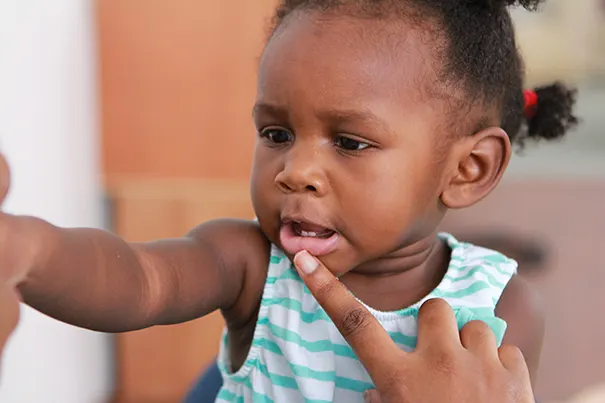What Should I Do If My Baby Injures a Tooth?
When your baby has just cut his first set of teeth, one of the last things you expect is that he will damage or lose one. However, it's not unusual for babies and toddlers to harm their teeth as they stumble around trying to (literally) find their feet. Being curious about exploring his surroundings is one of the delights of babyhood. But sometimes that sense of adventure coupled with an infant lack of fear may lead to tooth injuries, so it's a good idea to know what to do should an accident happen.
What do I do if my baby knocks out his tooth?
When your baby damages or knocks out a tooth, it's easy to panic. But if he comes to you, tooth in hand with a mouth full of blood, do try and keep calm so as not to distress him further. The mouth has a good blood supply, which is why things often look worse than they seem. The good news is that for the same reason it's also quick to heal — which is reassuring to know.
Do I need to go straight to the dentist?
If your baby loses a tooth, it's best to speak to your dentist straight away for expert guidance. Check that he doesn't have any other injuries. Then, keep the tooth moist and call your dentist for advice. With first teeth your dentist may decide that it's best to leave it for the tooth fairy — rather than to re-plant it, which may affect the growth of the permanent tooth that follows.
What if his gums also start to bleed?
If his gums start to bleed, apply pressure with wet gauze until the bleeding stops —offer lots of cuddles and maybe a game of peekaboo to ease the hurt and take his mind off the pain.
What if my baby has fallen over but there's no blood or missing teeth?
Your baby probably won't need a dental check up if he's not in any pain and there's no bleeding or gum damage. But if he's in distress or a tooth has come loose, take him to the dentist as he may have damaged the nerve. If the tooth is wobbly, the dentist may decide to extract it so that it doesn't become a choking hazard.
Are chips and cracks just part of childhood?
Baby teeth are easier to damage than adult teeth as the crown (the part of the tooth that shows) is a lot longer than the root, making them more unstable than adult teeth. However, if your baby has cracked or chipped a tooth but doesn't seem unduly distressed, there's no need to rush to the dentist — but it's a good idea to make an appointment anyway, to get it checked out. The dentist will be able to make sure there's not any damage that might not be apparent to the untrained eye.
How can I minimize the chance of my baby damaging his teeth?
Baby-proofing the house by guarding sharp corners may help to cut down the likelihood of an emergency trip to the dentist. You also may want to put rubber playmats down on hard floors as an additional precaution.
What should I do if my child loses a permanent tooth?
For older children that have lost a permanent tooth it's even more important to take immediate action. Find the tooth, handle it by the top or crown portion, not the root and drop it (without cleaning it) into milk to keep it moist. The American Dental Association suggests that parents should try to place a permanent tooth back in its socket without touching the root. If you can do that, have your child bite down on a gauze square while you make arrangements to see the dentist. If you cannot, take it along with the milk to the dentist immediately.
Join Pampers Club and get:




